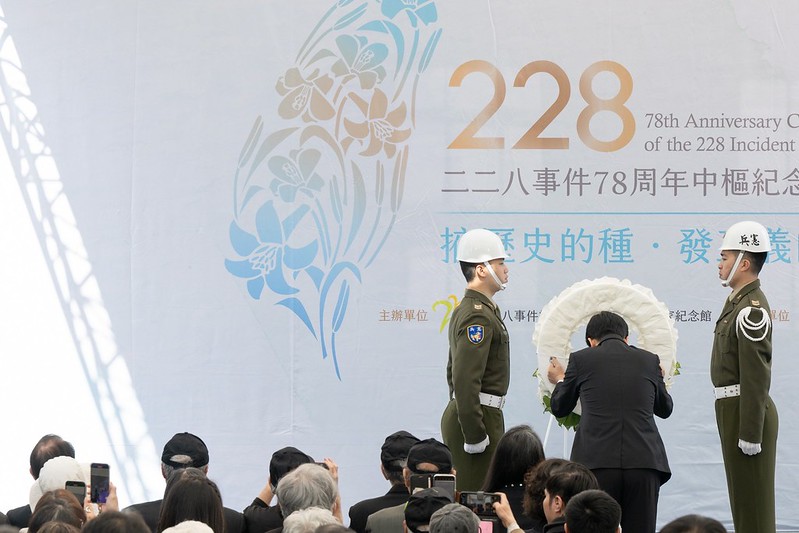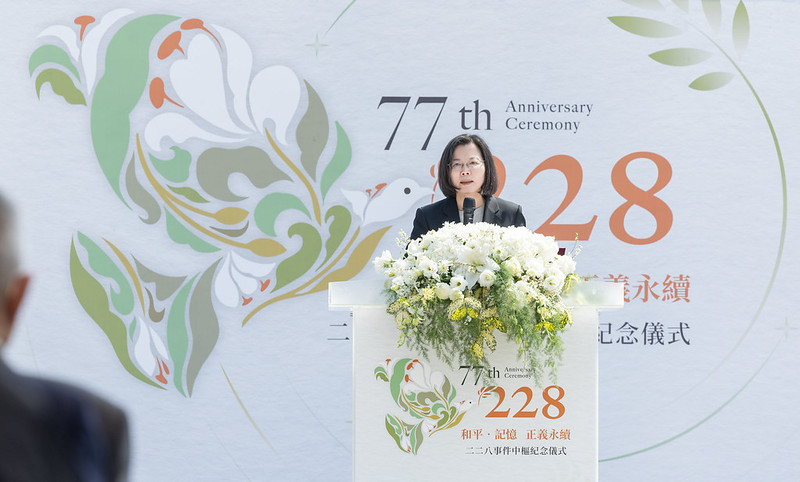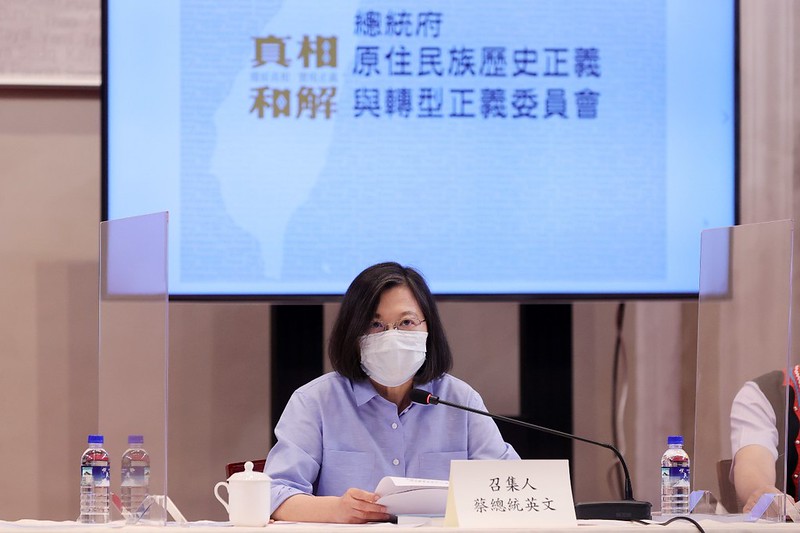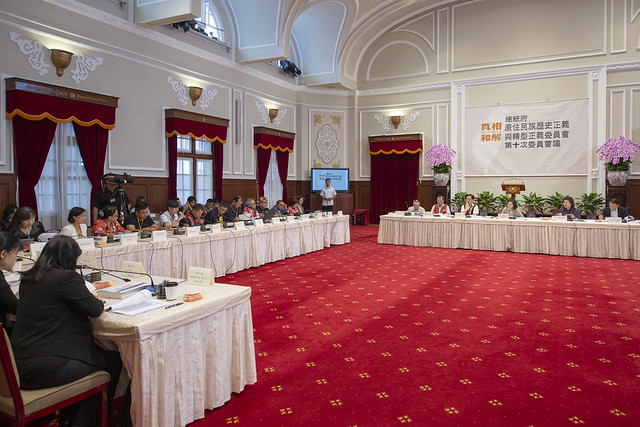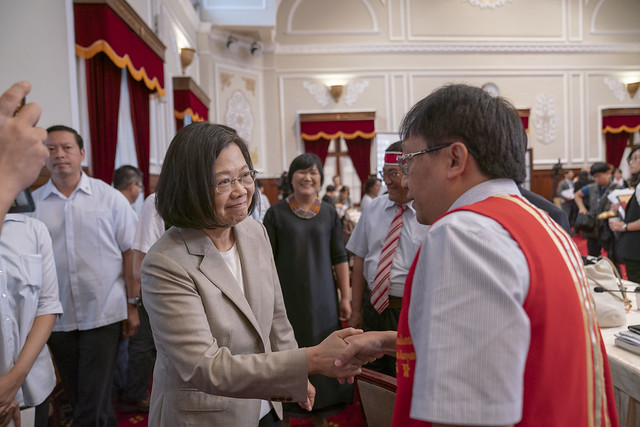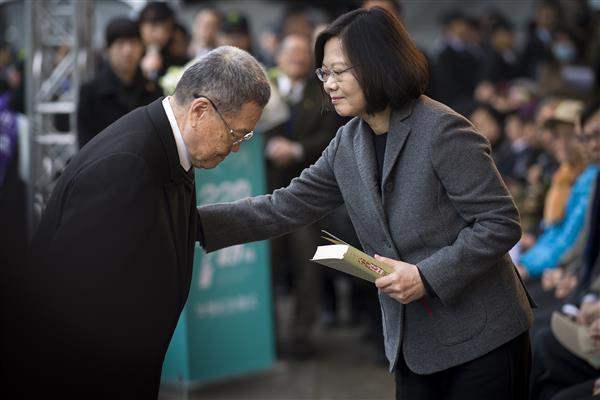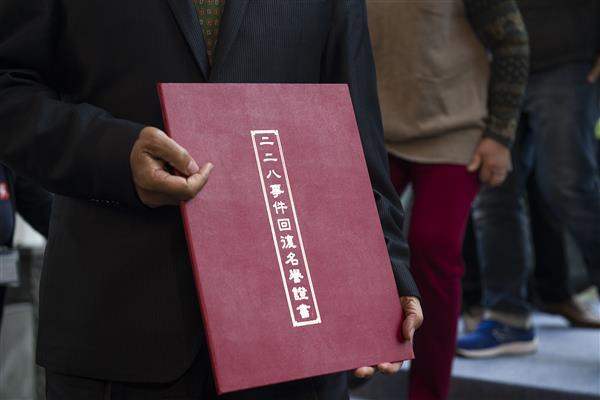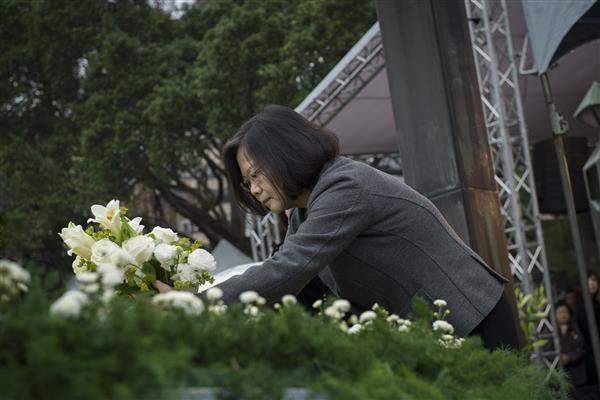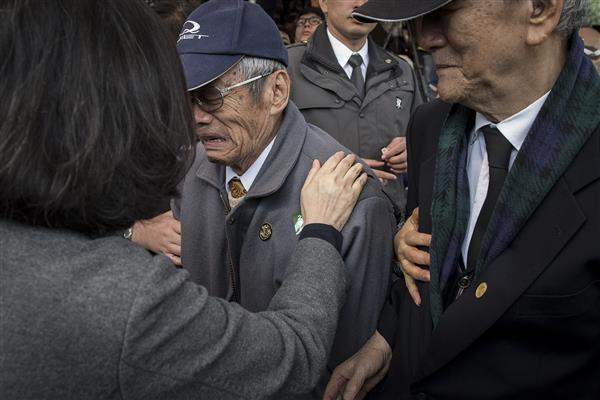News & activities
 News releases
News releases
On the afternoon of February 28, President Tsai Ing-wen attended the nation's main memorial ceremony to mark the 70th anniversary of the 228 Incident. In addition to laying flowers as a gesture of respect for the victims of the incident, the president emphasized that the government will exercise maximum prudence in determining responsibility for the 228 Incident, while adding that we must put to rest the idea that there were "only victims, and no victimizers." Hopefully, she added, the day will come when all the facts are laid bare, when the victimizers are willing to apologize, and the victims and their families are willing to forgive, so that democracy in Taiwan can move forward.
The following is a translation of President Tsai's remarks:
Today is the 70th anniversary of the 228 Incident. These past few days, one person has often been on my mind, and that is the historian Dr. Chang Yen-hsien (張炎憲). The first part of my remarks is dedicated to him.
Dr. Chang was born in 1947, the very year of the 228 Incident. He made great efforts to uncover the facts about the 228 Incident, and was a pioneer in the recording of oral histories related to the incident. He also spent a lot of time to determine who was responsible for the incident.
Were he still with us, I do believe he would be here in the audience today, marking this day by our side.
Dr. Chang had always wanted to put to rest the idea that in the 228 Incident there were "only victims, and no victimizers." As I stand here today, I want to tell our departed friend and all of the family members of victims here that we will take up Dr. Chang's work and keep moving forward with it.
Last Saturday, the Ministry of Culture put forward some ideas for change at the Chiang Kai-shek Memorial Hall. This being the 70th anniversary of the 228 Incident, I think it's high time we did so. I am confident that the mechanisms of democracy in Taiwan are mature enough for us to discuss this matter.
Just days ago, the Academia Historica issued a new collection of archival records related to the 228 Incident, and many of the records contained therein are newly discovered. This means that our efforts to find the truth will not cease.
Also in the past few days, our National Archives Administration, with the cooperation of many other government agencies, completed the declassification of all the archival records in its collection that relate to the 228 Incident.
Reconciliation must be built on truth. Tomorrow, the National Archives Administration will embark upon a new round of work to sort through political records. A lot of records pertaining to the 228 Incident are currently scattered among different government agencies, along with confessions, transcripts, surveillance reports, court judgments, and official documents. These will all be inventoried and their content evaluated so that they can serve as the basis for a national investigation report on transitional justice.
This investigation report will include a special section on the 228 Incident, and I want to emphasize that the government will exercise maximum prudence in determining responsibility for the 228 Incident.
Last Thursday, in order to ensure that the truth about the 228 Incident as well as the whole White Terror period can be brought to light, the Executive Yuan and the ruling party caucus in the Legislative Yuan carried out discussions and agreed that the draft bill for an act governing promotion of transitional justice will be accorded top priority during the current legislative session.
I hope that this bill will be passed during the current session, and I know that the family members with us here today share this hope. After the bill is passed, we will have an independent agency that is specifically tasked with bringing about transitional justice in Taiwan.
I know some will say that we shouldn't be rehashing the past, that we should instead look to the future. Leave it to history, they say, to weigh the achievements and transgressions of those who ruled during Taiwan's authoritarian period.
Some have also said that we've got our hands full just dealing with the economy, so why are we touching transitional justice? Others even said that the very idea of transitional justice is only a cover for political struggle.
Here is my response to such arguments: without truth, bygones can never be bygones. The economy is important, but so is justice. A country that is truly worthy of our aspirations is one in which both prosperity and justice reign.
The goal of transitional justice is reconciliation, not struggle. This is a principle to which the government will hold firm. Each and every individual needs to be involved in the quest for transitional justice. Only when all the people are able to face the past together can the country as a whole move together toward the future.
Just over a week ago I took part in an event to mark the International Holocaust Remembrance Day, and while there I saw the representatives of Israel and Germany together mourning the Jewish victims of the Holocaust, and together urging future generations never to let this history be repeated.
The German people were once victimizers, and the Jewish people were once victims. Seeing them attending that event together, I was very touched.
What they did that day perfectly embodied what we're trying to achieve through transitional justice. I hope that one day a similar scene will play out in Taiwan. And I hope that, after the achievement of transitional justice, there will no longer be any political party in Taiwan that need be weighed down by the historical burden of authoritarian rule.
I hope the day will come when all the facts are laid bare, when the victimizers are willing to apologize, and the victims and their families are willing to forgive.
I hope the day will come when February 28 is a day of unity for our country, when we no longer need to point fingers at each other, and when no one is haunted by disgrace and running from the past.
When that day comes, there will be no more taboos and no more names that cannot be mentioned. All political parties and ethnic groups in Taiwan will stand together, motivated by the kindness in their nature, to face up together to our tragic past.
When that day comes, we will transform into a different sort of country, and Taiwan's democracy will take another step forward.
It's been 70 years now. The victims and family members here today have waited a long time. I want once more to extend my deepest condolences to you all.
These have been days of bitter cold, but in our hearts we know that soon spring will come. Those who lived through the 228 Incident, successive generations of Taiwanese people, and Taiwan itself all want to see the flowers of springtime, and indeed we will. Thank you, everyone.
Upon completing her remarks, the president personally conferred "certificates of restored reputation" to three 228 victims and five family members of victims. Among those in attendance at the event were Taipei Mayor Ko Wen-je (柯文哲), Minister of the Interior Jiunn-rong Yeh (葉俊榮), Chairman Hsueh Hua-yuan (薛化元) of the Memorial Foundation of 228 Incident, and Director Peter Pan (潘信行) of the Taiwan 228 Care Association, as well as 228 Incident victims and their family members.
